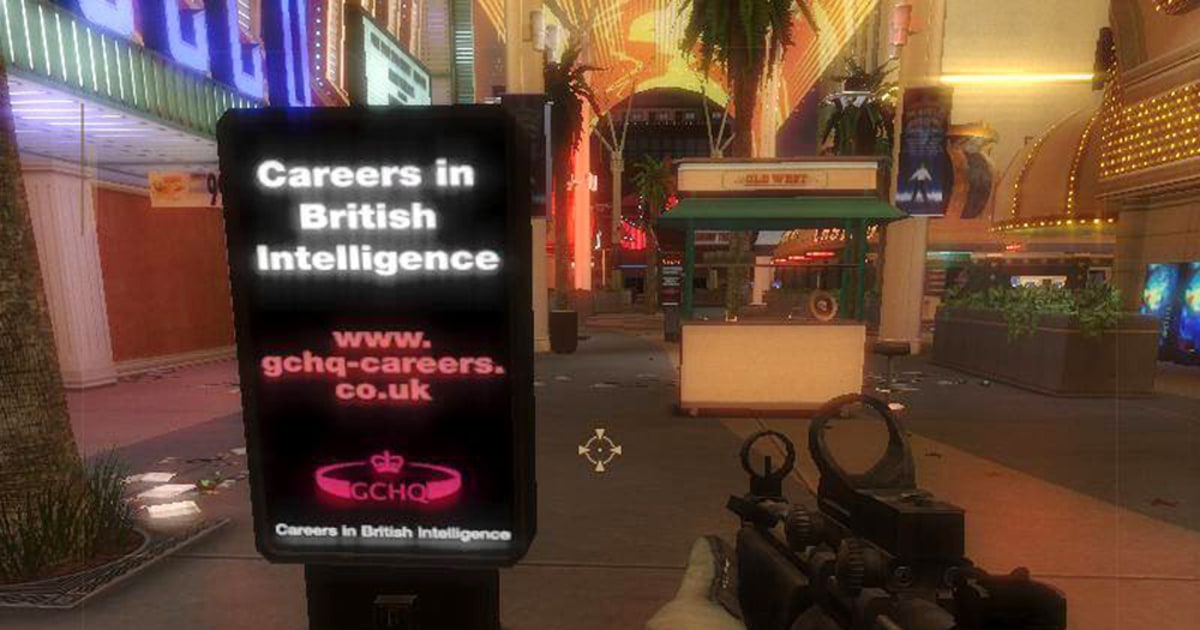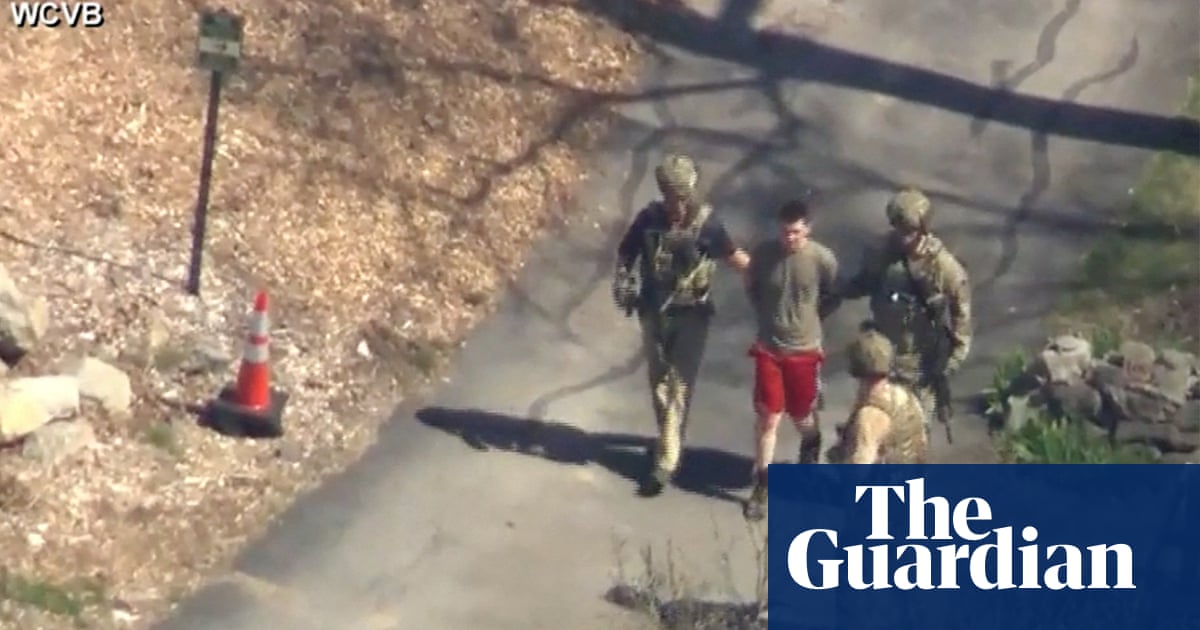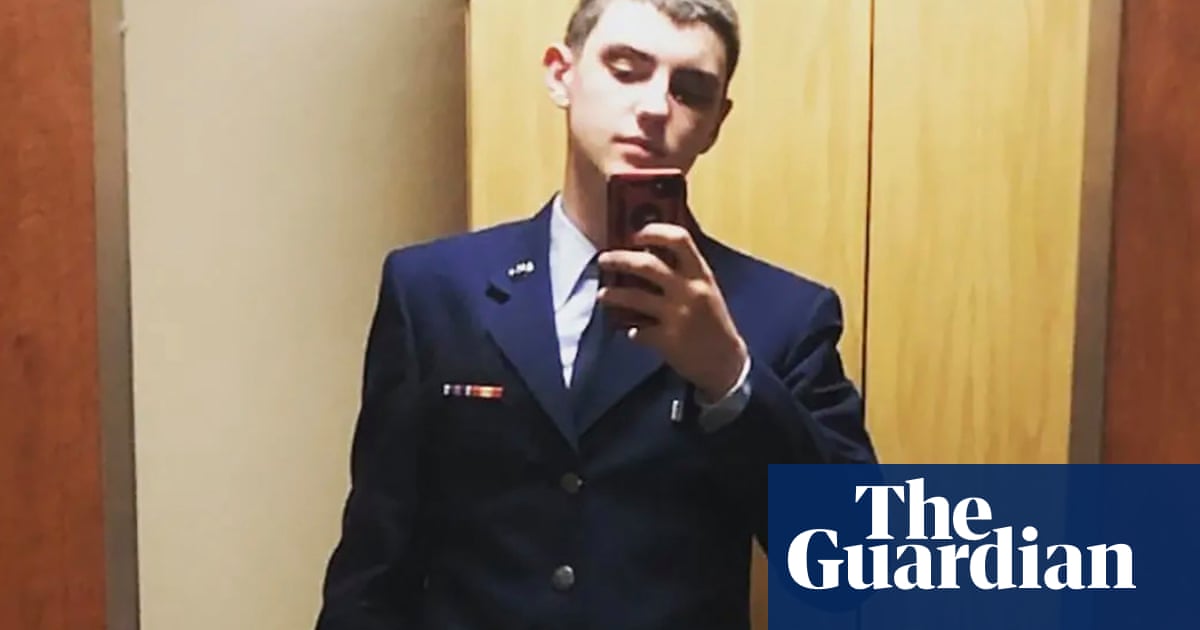Are the perpetrators influenced via the targeted and tailored (by hostile intelligence) online videogames? Online gaming as the common factor in mass killings and the document leak by Jack Teixeira - Selected Articles - 12:07 PM 4/14/2023
12:07 PM 4/14/2023 - Post Link
Michael Novakhov's favorite articles on Inoreader
The News And Times - thenewsandtimes.com | News Reviews in English and Russian | RSS Feeds and Pages | Audio and Video | Opinions and Analysis
#FBI FBI#OnlineGaming #MassKillings #JackTeixeira Are the perpetrators influenced via the targeted and tailored (by hostile intelligence) online videogames?
Online gaming as the common factor in mass killings and the document leak by Jack Teixeira - Google Search… pic.twitter.com/5xHMeWUDpB — Michael Novakhov (@mikenov) April 13, 2023
Are the online video gaming websites the perfect recruitment places for the hostile foreign intelligence services, including the GRU? - GS
#GRU #IntelligenceServices #VideoGaming #Recruitment Are the online video gaming websites the perfect recruitment places for the hostile foreign intelligence services, including the GRU? - Google Search https://t.co/RCbL0ypRT1 pic.twitter.com/4VYjcpGKkA
— Michael Novakhov (@mikenov) April 14, 2023
"Almost every teen plays video games — 97 percent of boys, according to the Pew Research Center, and 83 percent of girls."
And out of this number, about 1% to 5% may be quite susceptible to the online manipulations, including the "priming" for mass killings and other crimes detrimental to National Security, like these recent Pentagon leaks. Out of the 1-5% susceptible group, there is probably a final 1-5% of doers group. Computer interactions are very likely augmented by the real life human agents, witting or not.
FBI has to pay attention and to deal with this factor, which is well described in mass media, and which will only gain in significance in the coming years.
Michael Novakhov, blogger - 9:22 AM 4/14/2023
Links

Technology and social media provide extremist groups with a unique global platform to spread their ideology and indoctrinate young recruits. The Islamic State exemplifies the use of technology to disseminate high quality propaganda that emulates Hollywood movies and popular video games. Using a variety of social media platforms, the Islamic State has been able to reach millions of people and encourage tens-of-thousands to leave their homes and join the Caliphate.


"What #MassShooters Often Have in Common"? #MyOpinion: 1. Addiction to violent & war videogames 2. Manipulations by (secret) handler(s) 3. Telling Names as Criminal Signatures 4. Often suicide after shooting 5. Possible hidden shooters
6. Publicity https://t.co/3z2wzy9Xqn


John, a father of two in Colorado, had no idea what his 15-year-old son had gotten into, until one night last year when John walked into his home office. We're not using his last name to protect his son's privacy.
John saw a large pile of papers facedown next to his printer. He turned them over and found a copy of a notorious neo-Nazi propaganda book. "It's 'the white culture's in trouble, we are under attack by Jews, blacks, every other minority.' It was scary. It was absolutely frightening to even see that in my house. I was shaking, like, 'What in the world is this and why is it in my house?' "
John confronted his son angrily.
"I was through the roof." And then, "I went back into my room. I was crying. I felt like a failure that a child that I had raised would be remotely interested in that sort of stuff."
Almost every teen plays video games — 97 percent of boys, according to the Pew Research Center, and 83 percent of girls.
Increasingly, these games are played online, with strangers. And experts say that while it's by no means common, online games — and the associated chat rooms, livestreams and other channels — have become one avenue for recruitment by right-wing extremist groups.
At the time, John's son liked playing first-person shooter games, like Counterstrike: Global Offensive. Games like these are multiplayer — you must form teams with friends or strangers. You can chat in the game, over voice or text, or in separate chat rooms. Some of these are hosted by sites like Discord that make it easy for anyone to create a private chat.
John knew his son was spending time playing video games and chatting either out loud or over text, but there were no obvious red flags.
"There wasn't anything obvious to me at first because it's common. This is the norm for kids. Instead of hanging out at the drive-in they're all online," he said.
Yet it's exactly this way, John says, that his son started hanging out with avowed white supremacists.
These people became his son's friends. They talked to him about problems he was having at school, and suggested some of his African-American classmates as scapegoats. They also keyed into his interest in history, especially military history, and in Nordic mythology. Above all, they offered him membership in a hierarchy: whites against others.
"He started to feel like he was in on something. He was now in the in crowd with these guys. It provided some structure and identity that he was searching for at the time."
John learned his son had been drawn into conversation with at least one group that the Southern Poverty Law Center calls a Nazi terrorist organization. He searched online for help and found a man named Christian Picciolini.
Picciolini runs the Free Radicals project, which he calls "a global prevention network for extremism." He's a reformed skinhead himself.
"Thirty years ago, when I was involved in the white supremacist movement, it was very much a face to face interaction," he says. "You know, you had to meet somebody to be recruited, or you had a pamphlet or a flyer put on your car."
But today, he says, it's much more common for extremists to initially reach out online. And that includes over kids' headsets during video games. Picciolini describes the process: "Well typically, they'll start out with dropping slurs about different races or religions and kind of test the waters ... Once they sense that they've got their hooks in them they ramp it up, and then they start sending propaganda, links to other sites, or they start talking about these old kind of racist anti-Semitic tropes."
That's also what Joan Donovan has seen. She is the media manipulation research lead at Data and Society, a research institute, and she has been following white supremacists online for years. She says they've been highly innovative in using new online spaces, like message boards in the '90s, for recruitment.
"I saw how these groups communicated and spread out to other spaces online with the intent of not telling people specifically that they were white supremacists, but they were really trying to figure out what young men were angry about and how they could leverage that to bring about a broad-based social movement."
And violent first-person shooter games, she says, are one place to find angry young men. She calls "gaming culture" "one of the spaces of recruitment that must be addressed."
Donovan says that recruitment, and even the planning of harassment campaigns, happens not only during in-game chat, but during livestreaming of game play on platforms like Twitch and YouTube.
For example, there's a feature on YouTube called Super Chat, where fans can offer cash tips while gamers are playing.
"People will donate 14 dollars and 88 cents, which is a reference to ... a white nationalist slogan, as well as 88, which is most commonly found in prison tattoos, for Heil Hitler," Donovan said.
Game-related Reddit threads and chat sites like Discord also host similar conversations. Last year, a nonprofit media collective called Unicorn Riot published chat logs from Discord in which known white supremacists planned aspects of the Charlottesville "Unite The Right" rally.
Video games are a hundred billion dollar industry.
What are companies' responsibilities to ensure that young people won't encounter hate groups? We reached out to several game and chat companies for comment. Riot Games noted in a statement that it relies on volunteers to moderate game-related chats. And Discord, the chatroom site, forwarded a statement from the Southern Poverty Law Center, praising it for recently banning several far-right extremist communities.
Greg Boyd, who represents video game companies for the law firm Frankfurt Kurnit, says "toxic" behavior including hate speech, to say nothing of recruitment, is a key industry concern and a frequent topic of conversation. "If they could find it all they would get rid of it ASAP."
But it's a daunting technical challenge. The three biggest video game platforms — Microsoft, PlayStation and Steam — host 48 million, 70 million and 130 million monthly active players respectively, Boyd says. "That's the populations of Spain, France and Russia. And then imagine that you're monitoring all of their text chat ... all of their voice chat, in literally every language, dialect, and subdialect spoken in the world."
In the absence of sufficient resources for moderation, most game platforms rely on players to monitor and report each other.
Picciolini compares the companies to landlords with disruptive tenants "disrupting or damaging the building or threatening the other tenants. You know, they would take action."
But, Picciolini says, ultimately unwinding the influence of these groups over young people takes love and acceptance. He counseled John to find out what his son's personal struggles were — he calls them "potholes." As John put it, "He's missing something, so find out what those [potholes] are and fill those with something positive and healthy, and that's the way to steer them out of all this."
It took time, but lately, John says, his son, now 16, seems to have left these ideas behind. He's playing fewer networked shooter games, and on his own, he has started attending church.

Technology and social media provide extremist groups with a unique global platform to spread their ideology and indoctrinate young recruits. The Islamic State exemplifies the use of technology to disseminate high quality propaganda that emulates Hollywood movies and popular video games. Using a variety of social media platforms, the Islamic State has been able to reach millions of people and encourage tens-of-thousands to leave their homes and join the Caliphate.
As a result, companies like Facebook and Google unexpectedly found themselves at the forefront of combating the global war on terror. Following billions of dollars of investment in human capital and technology, Silicon Valley is finally succeeding at flagging and removing terrorist content. Despite these successes, evidence suggests that online gaming is becoming a new modus operandi for extremist groups to communicate with and attract young recruits.
Online gaming is one of the fastest growing industries. In 2018, more than 200 million people viewed the eSports League of Legends final championship, more than twice the number of people who watched the NFL Super Bowl. According to Pew Research polls, 97 percent of teenage males and 83 percent of teenage females play video games.
Even as video games are becoming ubiquitous in modern society, the controls around content have become less clear. Video games provide an unmonitored environment where extremists, from the Islamic State to neo-Nazis, can contact and groom potential recruits from around the world.
Governments and intelligence services have expressed concern in recent years that video games, particularly in-game chat and messaging services, are tools that extremist groups use to communicate propaganda and groom young recruits.
In 2013, documents leaked by National Security Agency (NSA) contractor Edward Snowden revealed that both the NSA and the Britain’s General Communications Headquarters (GCHQ), were tracking Islamic extremists using video games such as World of Warcraft and Second Life. In 2016, officials in the United Arab Emirates claimed that young Emiratis were being recruited by ISIS using online games.
There is also proof of this trend on the Deep and Dark Web. As recently as January 2019, Islamic State outlets used Telegram groups to provide supporters with specific instructions for how to use gaming platforms to recruit new members. The use of video games is a sufficiently prominent recruitment strategy that a member of the Islamic State’s deep web forum recently requested that the Flames of War 2 propaganda video be formatted to run on PlayStation Portable devices.
The content of modern video games also generates concerns. One game in particular, Counter-Strike, allows players to simulate terrorists trying to perpetrate a terrorist attack. Dubbed the “Gaming Jihad,” terrorist organizations have exploited violent multi-player first-person shooter games and violent imagery to attract young recruits. In 2014, the Islamic State even developed a propaganda film designed to look like the popular video games Call of Duty and Grand Theft Auto to appeal to young gamers by glorifying and fantasizing video game violence.
The Lebanese group Hezbollah developed its own video games where players can do battle against Israeli Defense Forces or kill ISIS fighters in Syria.
While Islamist groups have been at the forefront of exploiting electronic media, growing evidence indicates that online gaming platforms are becoming a haven for white-nationalist indoctrination efforts across Europe and the United States.
Starting in 2017, the Valve Corporation and its streaming community Steam have been in the spotlight for the ubiquitous presence of neo-Nazi groups operating on the platform. Steam offers community-based online gaming services, where gamers can find other gamers and connect with them using profiles, messaging, and voice-to-voice video conferencing. Steam currently has over 125 million active users; however, the community is almost entirely unregulated.
Recent media coverage of Steam has revealed thousands of users and community pages that support neo-Nazi white supremacist groups. There are similarly thousands of pages dedicated to glorifying school shootings.
Given the volume of this toxic content it is concerning that video games and online gaming communities have largely flown under the radar compared to other social media messaging and communication platforms. As a result, gaming is providing extremists with an appealing alternative platform to communicate, disseminate propaganda, and make targeted recruitments.
EXTREMIST RECRUITING IN VIDEO GAMES
Online gaming is a perfect extremist incubator, allowing recruiters to identify potential recruits, make contact, develop rapport, and then indoctrinate them. There are a number of factors that make online gaming a unique alternative space for recruitment.
Online gaming communities represent a pool of potential recruits from which extremists can identify and target individuals that are more likely to be sympathetic to their cause. In online communities like Steam, extremists can easily search among users and groups, or even advertise their ideologies on community pages and forums. Video games can also be a self-selecting environment. For example, gamers drawn towards violent games could be more susceptible to discuss or commit real acts violence.
One of the critical steps in radicalization is finding recruits that perceive injustice, feel powerless, or have a crisis of identity. Hundreds of groups on Steam idolize mass school shooters because their users are often victims of bullying. Extremist groups can manipulate these feelings to misplace blame or aggression. For example, a Neo-Nazi recruiter might try to convince a Steam community of bullied teenagers that ethnic and religious minorities are to blame for how they feel. The Islamic State has used this same tactic to target immigrant youth in Europe and translate their feelings of dislocation into a hatred of the West.
The online gaming space provides a unique environment where people are in contact remotely and anonymously. Online gaming is designed to foster closeness with friends and teammates whose real identities often remain anonymous. This allows extremists to build rapport with potential recruits. Video game platforms are also innately less suspicious than other forms of communication, and propaganda can be slowly socialized without users becoming alarmed.
Gamers often substitute socialization on the platform for engagement in their surrounding communities. As extremists develop relationships with online recruits, they can start to introduce increasingly radical ideas to test and vet their candidates. Without outside intervention, people that are isolated and vulnerable to radicalization tend to validate the extremist messaging they receive. They also have fewer opportunities to challenge the rhetoric they are hearing. Over time, their isolation leads to normalization of extremist views and hate speech. One clear concern on a platform like Steam is that if thousands of pages of “toxic” white supremist content are allowed to remain active, this starts to normalize neo-Nazi behavior in online gaming platforms. Given the volume of teenagers playing video games in the United States, this could have an enormous effect on shaping dialogue around white nationalism.
A WAY FORWARD FOR THE INDUSTRY
In the future, video game platforms will remain an appealing tool for extremist groups to communicate their message and recruit young gamers. There is already growing evidence of a nexus between video games, online isolation in gaming communities that espouse radical and violent views, and a network of white nationalists that are engaging vulnerable youth to groom and indoctrinate a future generation of white nationalists.
Currently the gaming industry is trying to self-police this problem. The media company Riot Games relies on volunteers to moderate game related chats, while online forums such as Discord actively ban far-right extremist communities.
However, banning all types of “toxic behavior” is a daunting technical challenge. Microsoft, PlayStation, and Steam host hundreds of millions of active monthly users and house tens-of-thousands of users and groups engaged in extremist content.
Effective solutions will require a holistic approach that blends innovative analytic tools with clear policy guidelines. The online gaming industry needs analysts and AI tools that can find and flag extremist content. These tools need to be robust and capable of monitoring enormous volumes of in-game text chat and voice chat that is often ambiguous, coded, and occurring in hundreds of different languages.
Effective strategies also need to go beyond simply policing the platforms. De-platforming toxic actors is important, but a whack-a-mole approach to counter-extremism is reactive. Having clearer polices and enforcement mechanisms to prosecute content violators, or even coordinate with law enforcement, is equally important for deterring extremist activities over the long-term.

A British intelligence agency is seeking spies in cyberspace.
GCHQ, the surveillance arm of British intelligence, said Thursday it hopes to attract computer-savvy young recruits by embedding job ads within video games such as "Tom Clancy's Splinter Cell: Double Agent."
GCHQ, which stands for Government Communications Headquarters, said it was looking to reach "an Internet-savvy generation of graduate groups."
In a statement, GCHQ said it hoped the campaign would "capture the imagination of people with a particular interest in IT."
The monthlong ad campaign, which starts at the end of October, is being run by GCHQ, the recruitment firm TMP Worldwide and Microsoft-owned in-game ad agency Massive Inc.
Ads headed "Careers in British Intelligence" will appear as billboards in scenes in "Splinter Cell" and other games including "Need for Speed Carbon" and "Enemy Territory: Quake Wars" when they are played on computers and Microsoft Xbox consoles in Britain.
Kate Clemens, Head of GCHQ's digital strategy at TMP Worldwide, said the campaign would target frequent gamers who "are particularly receptive to innovative forms of advertising."
"The world of online gaming offers GCHQ a further route to target a captive audience," she said.
GCHQ employs about 5,000 people at its high-tech headquarters in Cheltenham, western England.
Britain's shadowy intelligence services have slowly been raising their profile — and deflating some cherished secret-agent myths — as they attempt to attract a larger and more diverse pool of recruits.
The foreign intelligence service MI6 launched a Web site in 2005, which cautions that its work is far from the "level of glamour and excitement" of James Bond films. Its domestic counterpart, MI5, has an online section tackling "myths and misconceptions" that stresses "we do not kill people or arrange their assassination."
MI5 has placed job ads on the side of double-decker London buses and tried to attract more female applicants with ads in women's changing rooms at gyms.
A British security official said the locker-room posters had brought a wave of applicants, doubling the number of women employed as surveillance officers.
"The idea is to make people think more broadly about MI5 as a potential employer," she said, demanding anonymity to discuss intelligence work. "We need all kinds of people, not just those who look like they've stepped out an army officer academy."
MI6 — long the preserve of white, male graduates of Oxford and Cambridge universities — now stresses it requires employees from a wide range of backgrounds and with a variety of skills. One recent newspaper ad appealed for administrators under the tag line: "Protect your country. At your desk."
Microsoft bought New York-based Massive last year. The company sells virtual billboard space to advertisers, then — rather than placing the ads within the games themselves — delivers them over the Internet to PCs and Xbox 360 game consoles.
(MSNBC is a joint Microsoft - NBC Universal venture.)

Imagine that 3 a.m. emergency phone call coming through to a President Kamala Harris in which she would be required to clearly think on her feet, initiate decisive action, and stay plugged into the crisis until it abated.
The post Kamala Harris Is Useless appeared first on 19FortyFive.
"I think it's a matter of a few years until we see the start of political change in Russia."
Alexy Navalny's legacy continues to influence Russian politics despite being jailed and poisoned by Putin's regime says his friend and ally Vladimir Ashurkov.
---
📻 Listen to Times Radio - https://www.thetimes.co.uk/radio
📍 Subscribe to our channel - http://www.youtube.com/channel/UCTjDhFuGXlhx9Us0gq0VK2w?sub_confirmation=1
🗞 Subscribe to The Times Times.Radio/Subscribe
📲 Get the free Times Radio app https://www.thetimes.co.uk/radio/how-to-listen-to-times-radio/app

WASHINGTON -- In a social media world that produces traceable digital fingerprints, it didn't take long for federal authorities and journalists adept at sifting through data to land on the name of Jack Teixeira.
Teixeira, 21, who served in the Massachusetts Air National Guard, was arrested Thursday in connection with the far-reaching leak of classified documents that have shaken capitals from Washington to Kyiv to Seoul with revelations of U.S. spying on allies and foes alike, and the disclosure of sensitive military intelligence about the war in Ukraine.
Attorney General Merrick Garland said Teixeira would be charged with the unauthorized removal of classified national defense information.
There were clues in messages posted in a chatroom on Discord, a social media platform where Teixeira is believed to have posted for years about guns, games and his favorite memes -- and, according to some others chatting with him, closely guarded U.S. secrets.
The investigative website Bellingcat and The New York Times first publicly identified Teixeira, minutes before federal officials confirmed he was a subject of interest in the investigation. They reported tracking profiles on other more obscure sites linked to Teixeira.
The suspect, as part of his duties, reportedly had access to highly classified information.
The case underscores the challenges the U.S. and other governments have in keeping secrets in an era of omnipresent data and an ever growing army of savvy users who know how to exploit it.
When asked how such a young service member could have had access to highly sensitive documents, the Pentagon spokesman, Brig. Gen. Patrick Ryder, said it was the nature of the military to trust its very young service members with high and sometimes grave levels of responsibility, including high levels of security clearance.
Soldiers fresh out of high school went to fight in Iraq, Afghanistan and other combat zones for a generation, often using top-secret intelligence and programs to target adversaries.
"We entrust our members with a lot of responsibility at a very early age. Think about a young combat platoon sergeant, and the responsibility and trust that we put into those individuals to lead troops into combat," Ryder said.
In previous Associated Press stories, the leaker was identified as "the O.G." by a member of an online chat group where Teixeira and others posted for years. The member of the chat group declined to give his name to the AP, citing concerns for his personal safety.
The chat group, called "Thug Shaker Central," drew roughly two dozen enthusiasts who talked about their favorite types of guns and also shared memes and jokes, some of them racist. The group also included a running discussion on wars that included talk of Russia's invasion of Ukraine.
In that discussion, "the O.G." would for months post material that he said was classified -- originally typing it out with his own notations, then a few months ago switching to posting images of folded-up papers because he felt his writings weren't being taken seriously, the person said.
A different participant in the group shared some of the files several weeks ago in a different chat group -- and from there they appear to have spread across the Internet.
The person who spoke to the AP said he had not communicated with Teixeira on Thursday but had stayed in touch earlier in the week. Teixeira had said he knew the FBI was looking for him, the person said.
Teixeira was an airman first class detailed to an Air Force intelligence unit, according to Facebook posts from the 102nd Intelligence Wing based at Otis Air National Guard Base in Massachusetts.
Teixeira's specialty in the Air National Guard was as a "cyber transport systems specialist," essentially an IT specialist responsible for military communications networks, including their cabling and hubs. In that role Teixeira would have had a higher level of security clearance because he would have also been tasked with responsibility to access and ensure protection for the network, a defense official told the AP.
The National Guard issued a statement saying it was aware of the investigation and "takes this issue very seriously."
"National security is our foremost priority and any attempt to undermine it compromises our values and degrades trust among our members, the public, allies and partners," the statement said.
Local police on Thursday had blocked off the street in front of a home listed as belonging to his family.
The person who spoke to the AP says "the O.G." -- who he acknowledged Thursday was Teixeira -- was an observant Christian who often spoke of God and prayed with members of the chat group.
While he was enlisted, Teixeira opposed many of the priorities of the U.S. government and denounced the military "since it was run by the elite politicians," the person said, adding that he didn't know why Teixeira had signed up in the first place.
"He expressed regret (about) joining a lot," the person said. "He even said he'd kick my ass if I thought about joining."
But the person has stressed that he didn't believe Teixeira leaked documents to undermine the U.S. government or for an ideological reason.
When The New York Times first published a story last week about the documents, the person said, members of the group were on a video call when "the O.G." talked to them.
"Basically what he said was, 'I'm sorry, guys, I prayed every single day that this wouldn't happen,'" the person said. "'I prayed, and I prayed, and now it's only up to God what happens next.'"
Information for this article was contributed by Tara Copp of The Associated Press.

Former IT specialist, 21, arrested on Thursday is accused of intelligence leak believed to have started on Discord. Plus, are Matthew McConaughey and Woody Harrelson actually brothers?
Good morning.
The US Department of Justice arrested 21-year-old Jack Teixeira as a suspect in the recent leaks of Pentagon intelligence online, the US attorney general announced yesterday, and he is due to appear in court on Friday.
How was he found? The investigative website Bellingcat and the New York Times publicly identified Teixeira minutes before federal officials confirmed he was a subject of interest in the investigation. They reported tracking profiles on other more obscure sites linked to Teixeira.
How much did he leak? The Guardian has seen about 50 of the documents. But there are signs that many more were first posted on the Thug Shaker Central online group. The New York Times said it had seen about 300 of the documents, only a fraction of which have so far been reported, indicating the national security damage could be worse than has so far been acknowledged.
What was Teixeira’s job at the Pentagon? He was a “cyber transport systems specialist”, essentially an IT specialist responsible for military communications networks, including their cabling and hubs. A defence official has told the Associated Press that in that role Teixeira would have had a higher level of security clearance, because he would have also been tasked with ensuring protection for the networks.
What has the Pentagon said about the access he had to such highly classified documents? The Pentagon spokesperson, Patrick Ryder, said it was the nature of the military to trust its very young service members with high-level duties. “We entrust our members with a lot of responsibility at a very early age. Think about a young combat platoon sergeant, and the responsibility and trust that we put into those individuals to lead troops into combat.”
What else do we know? Here’s a rundown of everything we know so far about the Pentagon leak investigation.
Continue reading...
In photographs, Jack Teixeira, the 21-year-old air national guardsman who has been identified as the prime suspect in the leak of classified intelligence documents, is slim in his dark blue air force uniform. He is youthful looking, barely older than the teenage friends seen in the online group in which the classified documents were leaked.
On Thursday evening, the FBI arrested Teixeira and were searching his home. Video footage from a local TV station showed him being led away in handcuffs.
Teixeira was identified by the New York Times as the leading figure in an online gaming chat group, Thug Shaker Central, on the social network Discord. The details that have emerged about Teixeira have put him in the frame as a person of interest in the leak investigation.
Deployed in the 102nd intelligence wing of the Massachusetts air national guard, Teixeira was also a key member of a group of about 30 people who shared an interest in guns, video games and racist memes.
Teixeira, the newspaper suggested, was the individual known to members of the group as OG, who had been identified a day earlier by the Washington Post as the leaker.
Assembled at the height of the pandemic in 2020, Thug Shaker Central was an invitation-only chatroom.
It appears that from the beginning, the leaker sought to impress its young members, writing messages heavy with acronyms and jargon, posting classified documents, at first typing up verbatim transcripts and then leaking actual documents – which appeared to have been physically removed from a secure place and photographed.
According to the Washington Post, OG told other members these were documents he had brought home from a “military base” where he sometimes worked in a secure facility that prohibited mobile phones and other electronic devices.
Underlining the suspicions that the person may have been Teixeira, the New York Times said details of the interior of his childhood home, posted on social media in family photographs, matched details on the margins of some of the photographs of the leaked secret documents.
Interviewed by the paper, Teixeira’s mother, Dawn, confirmed that her son was a member of the air national guard and said that recently he had been working overnight shifts at a base on Cape Cod, and in recent days he had changed his phone number.
A number for Bayberry Farm and Flower Co, a flower business believed to be owned by Jack Teixeira’s mother, went to voicemail. A message said the business is closed this week.
The company is based at the same North Dighton, Massachusetts, address where Teixeira is understood to live. It is owned by Dawn and Tom Dufault – public records show that Dawn Dufault was previously known as Dawn Teixeira.
The company’s Facebook page had mentioned Jack Teixeira in June 2021. “Jack is on his way home today, tech school complete, ready to start his career in the Air National Guard!” a message said, under a photograph of a “Welcome home” balloon.
Teixeira’s career in the national guard progressed. A photo posted to the Facebook page for the 102nd intelligence wing of the Massachusetts air national guard in July 2022 congratulated him on an apparent promotion to Airman 1st Class. The post was still live on Thursday afternoon.
As the US has followed a trail to Teixeira’s home, the question of what might have motivated the leaker has become ever more pressing. The reverberations of the leak have spread from Kyiv to Seoul and to other global capitals, and left onlookers shaken by the hugeness of the leak and by evidence that the US has been spying on its allies.
The explanation furnished by members of the chat group has been startlingly mundane. The leaker, they insist, was not a whistleblower but a young man who wanted to show off to his young friends with the documents never intended to leave the chat group.
“He’s a smart person. He knew what he was doing when he posted these documents, of course. These weren’t accidental leaks of any kind,” one member told the Washington Post.
But leak out they did. First as they were cross-posted on other social media channels and then as they were picked up by Russian channels.
Group members said OG would lecture them about international affairs and secretive government operations.
“This guy was a Christian, anti-war, just wanted to inform some of his friends about what’s going on,” said one acquaintance. “We have some people in our group who are in Ukraine. We like fighting games, we like war games.”
But there was a darker side to OG too. In a video seen by the Washington Post, a man identified as OG is seen at a shooting range with a large rifle, making racial and antisemitic slurs on camera.
As the investigation has closed in on the culprit, serious questions have been asked about the latest highly embarrassing leak of US intelligence.
Perhaps top of the list is how someone so young and emotionally insecure, and with racist and anti-establishment views, could have been allowed access to a site containing highly classified intelligence.
Equally shocking, as the story is emerging, is how that individual was able to remove classified material from a secure site without raising suspicions.
In a pointed tweet, Tom Nichols of the Atlantic, who himself had security clearance for 35 years, said: “I hope this guy isn’t the leaker, because I’m gonna have some questions about how a Mass Air Guard guy got CJCS [Chairman of the Joint Chiefs of Staff] briefing slides.”
Additional reporting by Adam Gabbatt in New York





Comments
Post a Comment